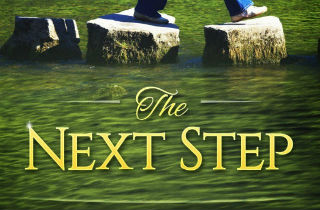Harnessing subconscious mind power
The power of the human subconscious has been a target of many scientific studies. Our subconscious mind works like a memory hard drive: it stores everything, from information to experiences. The most important experiences that shape our reality are the so called “core memories”. The memory of these early experiences determines our perception and behavior for the rest of our lives.
Q: Is it possible that we spend most of our time subconsciously reacting to life, rather than just consciously creating it?
A: Unfortunately, yes.
The brain consumes only 20% of the oxygen we breathe, according to cognitive neuroscientist Sergio Della Sala. This means that almost 80% of our brain capacity is subconsciously driven.
Where does the secret of harnessing our subconscious mind lie? Continue reading to find out the more about a book that teaches techniques that can lead you to break free from:
- negative emotions
- negative perceptions
- old thinking patterns
Learn how to regain control over your subconscious and recreate it while in addiction recovery! Then, we invite your questions or feedback at the end.
The step beyond the 12 Steps
For decades, the 12 Steps have been the lightning beacon of hope for those who struggle with addictions. But, is there another remaining step that can help you understand and heal your inner wounded world?
Yes, there is!
The author of this book believes that inner work should continue after you practice the 12 Steps so that you can reach the unresolved emotional and psychological issues that fuel addiction.
Who is The Next Step intended for?
This workbook is intended for recovering addicts who have already completed rehab and/or have spent time participating in 12 Step programs. It addresses only the emotional and psychological components of addiction, which excludes the physical aspects. In other words, The Next Step is NOT a substitute for detox or treatment programs, which means you can use it as a complementary part of a professional addiction treatment program.
Why do we recommend The Next Step?
We love this guide to overcoming false beliefs and negative thinking patterns because it emphasizes the importance of the emotional roots of addiction. Despite the fact that this manual requires time and effort to dig deeper in your inner self, it is very well structured and easy to read. After finishing this workbook you’ll be able to:
- cope with daily stresses
- overcome repetitive thoughts about abusive childhoods or relationships
- forgive
- release shame and judgment
…and eventually you’ll be able to find happiness and meaning in your new sober life. It is a holistic manual to coming closer to your true self! This book is an excellent How-to Guide which takes you on the most important journey, the journey to self discovery.
What are Emotional Freedom Techniques?
The Emotional Freedom Techniques (EFT) techniques in this workbook along with the exercises are designed to educate and guide addicts on their way of becoming more aware about the emotional and psychological components of their addiction. Those who follow the structure of this book will be able to:
- Remove the emotional short circuit in the mind (negative beliefs and emotions which kept hidden in the subcoscious mind)
- Rebalance the energy system
- Restore the mind and body’s natural ability to heal
What can you expect from The Next Step?
After reading the book, you can expect a rounded understanding of where you’ve been going wrong in your thinking…and practice interventions you can USE TODAY to change them! This is probably the main reason why this book is structured as a workbook and a manual consisted of nine (9) sections, complete with self reflecting exercises at the end of each section.
SECTION ONE introduces the readers with the Emotional Freedom Techniques (EFT) such as:
- Tapping therapy
- Formulating set up statements
- Reminder phrases
This section speaks about the importance, performance and benefits of the listed techniques.
SECTION TWO guides you through a transformation of your negative beliefs which later translate into negative behaviors.
SECTION THREE helps you identify negative beliefs that are sabotaging your self confidence. The exercises in this section are built to help you detach your actions from your identity and create healthy self-esteem and increase self-confidence.
SECTION FOUR is focused on teaching addicts how to recognize and manage stress. Additionally, readears will have the opportunity to learn how to apply Emotional Freedom Techniques (EFT) and control their cravings.
SECTION FIVE enhances the meaning and importance of spirituality for recovering addicts.
SECTION SIX addresses the addict’s inner wounded child. The EFT exercises in this section hope to lead you through identification of your traumatic emotional experiences, after which you will measure their level of intesity and – the last step – master the art of forgiveness.
The goal of SECTION SEVEN is to show you how to restore your dignity by overcomming shame, guilt and judgement.
SECTION EIGHT aims to teach recovering addicts how to find meaning and happiness by re-examining their expectations.
SECTION NINE contains an action plan which is designed to constantly remind you about sticking to your plans and staying on the right path.
How can you address negative thinking in addiction recovery?
Wondering where you can find “The Next Step – How to free yourself from the False Beliefs and Negative Thinking Patterns That Drive Addictions and Destructive Behavior”? To buy, download and read the book, check this link: http://mindbodynetwork.com/library/book/the-next-step. Additionally, if you are left with any questions about this book, we ask you to post them in the section below. We also welcome your feedback if you’ve read the book, and would like to comment and share your opinion.









Related Posts